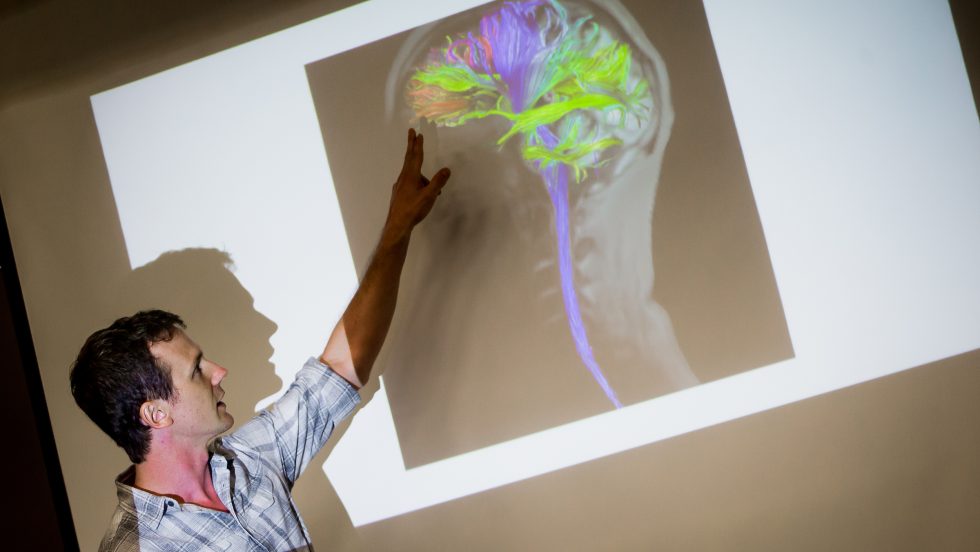Human Frontier Science Program Awards $1.5-Million Grant to New College of Florida and Partnering International Researchers for Marine Mammal Study

Entitled “Social Origins of Rhythm,” the highly complex project concentrates on the evolution of vocal communication in marine mammals (with a particular focus on vocal rhythms and synchrony), according to New College Assistant Professor of Psychology Peter Cook, Ph.D.
“We’re looking at naturally-occurring social vocalizations in wild marine mammals and conducting structured playback studies with a subset of these species. Many marine mammal species show high degrees of vocal flexibility and a strong capability for vocal learning, which are quite rare in the animal kingdom,” Cook said. “Interestingly, these abilities vary greatly between marine mammal species, meaning we can examine evolutionary and ecological circumstances related to vocal learning within closely related species. We can also look at changes in the brain that are related to differences in vocal capability.”
The researchers plan to look at exemplar species from pinnipeds (seals and sea lions), and toothed and baleen whales. Cook is part of a team of researchers that includes Stephanie L. King, Ph.D., from the School of Biological Sciences at the University of Bristol in the United Kingdom; Peter Madsen, Ph.D., from the Department of Biology at Aarhus University in Denmark; and Andrea Ravignani, Ph.D., from the Max Planck Institute for Psycholinguistics in the Netherlands.
The 2022 HFSP research grants provide three years of support for international teams involving at least two countries. As an organization, 1989-founded HFSP promotes this type of global collaboration to encourage researchers to “interact with teams bringing expertise that is very different from their own, so as to create novel approaches to problems in fundamental biology,” according to the HFSP.
Cook’s portion of the work will include using diffusion tensor imaging (DTI)—a type of brain imaging that allows researchers to take pictures of white matter tracts in live and dead brains. These tracts make up the structural networks that support brain function.
Because Cook’s yearly advanced student lab course uses this same type of data, there will be many opportunities for New College students to get involved in the project. Cook also plans to hire a post-doctoral fellow to assist with the research, and this individual will act as a resource and potential collaborator for students.
“This grant provides necessary funding to advance a number of long-standing interests I’ve had in the neurobiology and comparative evolution of communication in marine mammals,” Cook said. “I’ve done behavioral work examining production of vocal rhythms in sea lions previously, and I have also published on auditory neural tracts in dolphin brains. But I haven’t had the resources to advance a large-scale push on these topics. One area of particular interest that we’ll explore is the role of rhythmic calls in organizing and coordinating complex social behavior, and the alterations to brain networks that support this type of behavior.”
Cook added that researchers currently know far more about the neurobiology of communication in a range of bird species than they do about marine mammals.
“We do know that marine mammals have complex vocal communication capabilities, but there are lots of gaps in current knowledge. With this grant, my collaborators and I can start filling some of them in,” Cook said. “As a professor at a small liberal arts institution, it isn’t always easy to get access to this type of research funding, so I also feel it validates my belief that one can be a dedicated teacher and still carve out time for impactful science.”
Abby Weingarten is the senior editor in the Office of Communications & Marketing.
